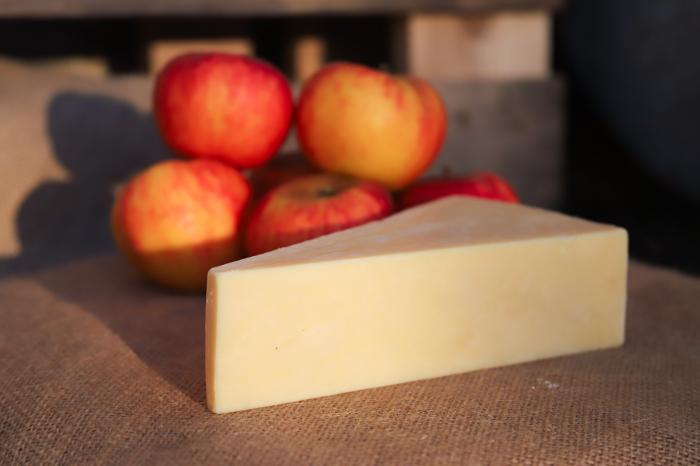Breastfeeding is an important time for both mother and baby. It is crucial for mothers to maintain a balanced and nutritious diet. Many women enjoy including cheese in their meals. However, the type of cheese can raise questions, especially when it comes to unpasteurized cheese. This article explores the safety, benefits, and risks of consuming unpasteurized cheese while breastfeeding.
Understanding Unpasteurized Cheese
Unpasteurized cheese, also known as raw cheese, is made from milk that has not been pasteurized. Pasteurization is the process of heating milk to kill harmful bacteria. This step is crucial in ensuring the safety of dairy products.
Unpasteurized cheese can have a richer flavor and texture. It is often sought after for its unique taste. However, it also carries potential health risks.
Common Types of Unpasteurized Cheese
Some common types of unpasteurized cheese include:
Brie
Camembert
Blue cheese
Feta
Goat cheese
These cheeses are popular in many cuisines. They are often used in salads, spreads, and gourmet dishes.
Nutritional Benefits of Cheese
Cheese is a good source of essential nutrients. It provides:
Calcium: Important for bone health.
Protein: Helps in muscle repair and growth.
Vitamins: Including vitamins A and B12, which are crucial for overall health.
Healthy Fats: Essential for energy and nutrient absorption.
Incorporating cheese into a breastfeeding diet can help meet nutritional needs. However, the choice of cheese matters, especially when considering unpasteurized options.
Risks of Unpasteurized Cheese During Breastfeeding
While unpasteurized cheese can offer unique flavors and nutrients, it also carries certain risks, particularly for breastfeeding mothers.
1. Risk of Bacterial Infections
Unpasteurized cheese can harbor harmful bacteria. Common bacteria found in raw dairy products include:
Listeria
E. coli
Salmonella
These bacteria can pose serious health risks. Listeria, for example, can cause listeriosis. This infection can lead to severe complications, including miscarriage or preterm labor in pregnant and breastfeeding women.
2. Impact on Breastfeeding
If a mother contracts an infection from unpasteurized cheese, it can affect her ability to breastfeed. Symptoms such as fever, fatigue, and gastrointestinal distress can make breastfeeding difficult. Additionally, infections can potentially be passed to the baby through breast milk.
3. Risk to Newborns
Newborns have developing immune systems. They are more susceptible to infections. If a breastfeeding mother consumes unpasteurized cheese and becomes ill, there is a risk of transmitting harmful bacteria to her baby. This can lead to severe health issues for the infant.
Recommendations for Breastfeeding Mothers
Given the risks associated with unpasteurized cheese, breastfeeding mothers should consider the following recommendations:
1. Choose Pasteurized Options
It is advisable to opt for pasteurized cheese instead of unpasteurized. Pasteurized cheeses are safer and still offer nutritional benefits. They include a wide variety of options, such as:
Cheddar
Mozzarella
Swiss
Parmesan
These cheeses provide the same essential nutrients without the risks associated with raw cheese.
2. Read Labels Carefully
When shopping for cheese, always read the labels. Look for terms like “pasteurized” or “made from pasteurized milk.” This ensures that the cheese you choose is safe for consumption.
3. Consult a Healthcare Provider
If you have a strong preference for unpasteurized cheese, consult your healthcare provider. They can provide personalized advice based on your health status and breastfeeding journey.
4. Monitor Your Body’s Response
If you choose to consume any cheese, pay attention to how your body reacts. If you experience any adverse symptoms, such as gastrointestinal discomfort, discontinue consumption and seek medical advice.
Potential Benefits of Unpasteurized Cheese
Despite the risks, some believe that unpasteurized cheese has benefits. These may include:
1. Probiotic Content
Unpasteurized cheese can contain live cultures. These probiotics can promote gut health. A healthy gut can support overall well-being, which is important for breastfeeding mothers.
2. Enhanced Flavor and Texture
Many people prefer the taste and texture of unpasteurized cheese. It often has a more complex flavor profile. This can make meals more enjoyable, which is beneficial for mothers trying to maintain a balanced diet.
3. Nutrient Density
Unpasteurized cheese can be nutrient-dense. It may provide additional vitamins and minerals that are beneficial during breastfeeding. However, the risks often outweigh these potential benefits.
See also: What Cheese to Avoid While Breastfeeding: A Comprehensive Guide
Conclusion
Unpasteurized cheese presents both risks and benefits for breastfeeding mothers. While it may offer unique flavors and probiotic content, the health risks associated with harmful bacteria are significant.
For the safety of both mother and baby, it is generally recommended to choose pasteurized cheese. This ensures a balanced and nutritious diet without the risk of foodborne illness.
Ultimately, every mother’s situation is unique. It is crucial to prioritize health and safety during breastfeeding. If you have any questions or concerns about your diet, consult a healthcare professional. They can provide guidance tailored to your specific needs and help you make the best choices for you and your baby.
Related topics:


